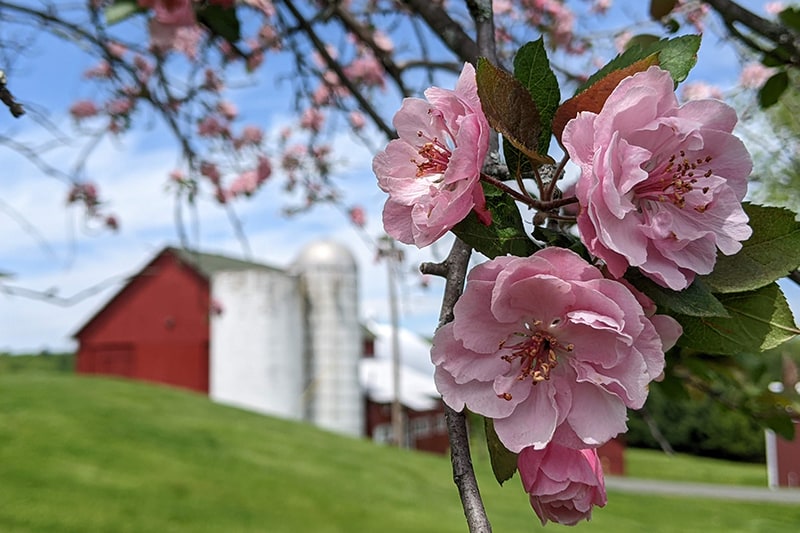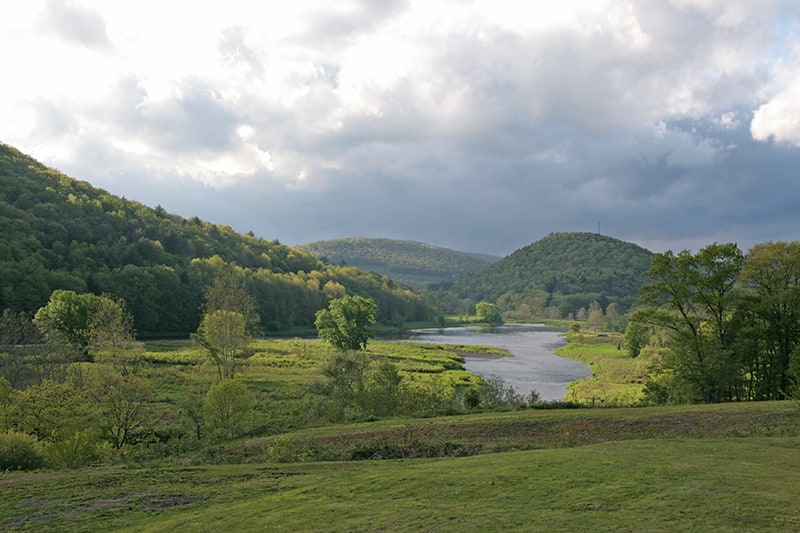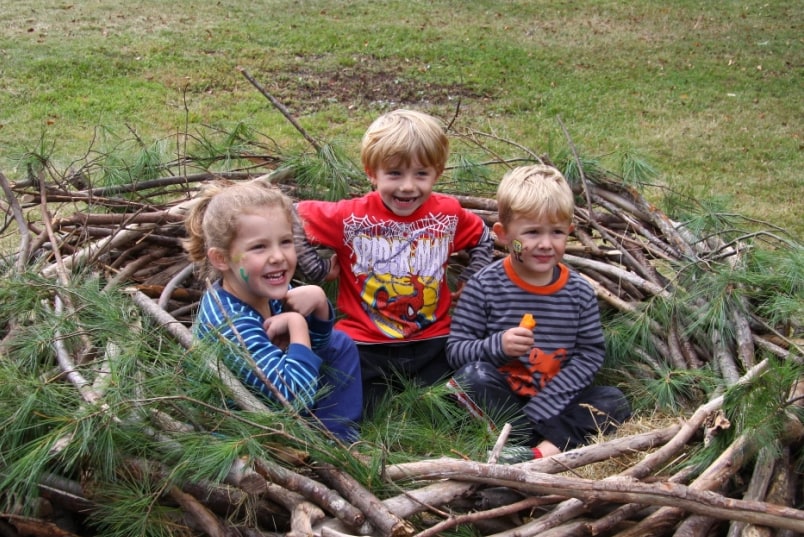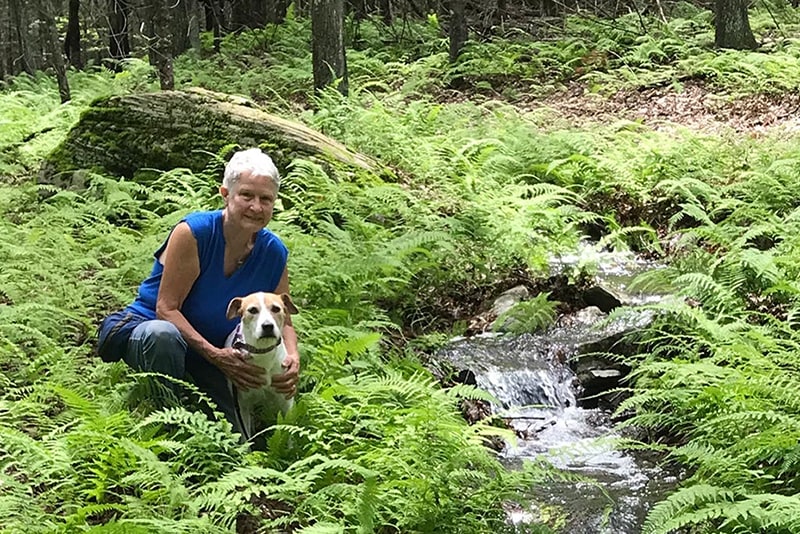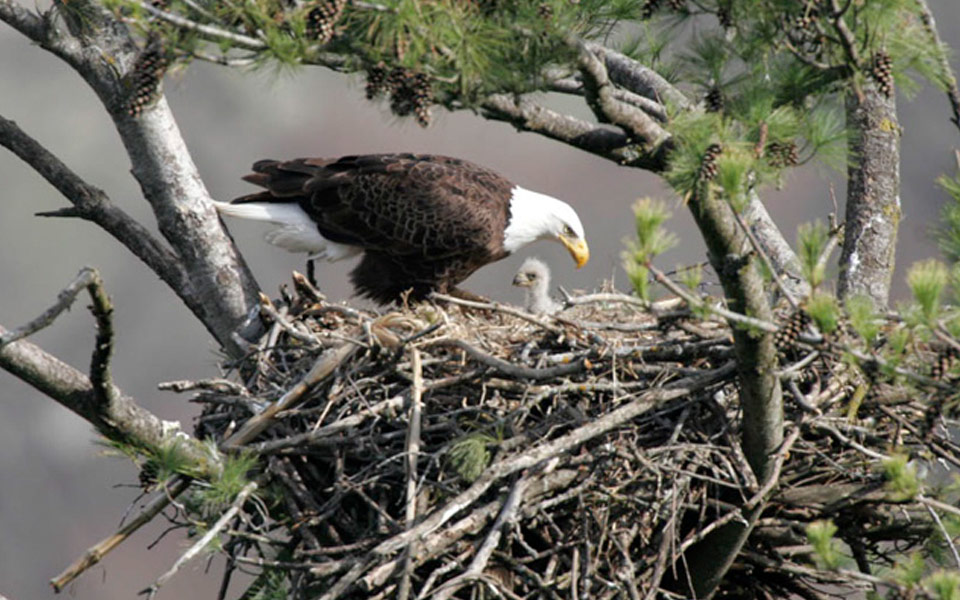LandLines Newsletter Archive
LandLines is our bi-annual newsletter for conservation easement holders.
2025
Spring 2025 - LandLines
- Lingering Hemlock Search Project
- Understanding Chronic Wasting Disease
- Spring Stewardship
- Native and Invasive Species: Dragon Horn Cladonia and Fishpole bamboo
2024
Summer 2024 - LandLines
- 30 Years of Conservation
- Native and Invasive Species: Sensitive Fern and Amur Cork Tree
- Farewell from Nicole
- North and South American Birds to be Renamed
- PA Tick Research Lab
- New Wildflower Meadow Planted at Reserve
- Spotted Lanternflies Achilles' Heel
- Eat Your Invasives: Dandy Knotweed Muffins
- Understanding the Importance of Current Condition Reports
2023
Spring 2023 - LandLines
- Support Your Local Pollinators and Mow Less
- The American Marten
- Fun App for Birders!
- Native and Invasive Species: Skunk cabbage and Jetbead
Fall 2023 - LandLines
- Conservancy Responds to Timber Theft on Protected Property
- A Note From Steve, Summer 2023 Stewardship Intern
- Beech Leaf Disease
- Spongy Moth: The Latest Update
- Native and Invasive Species: Wineberry and Turtlehead
2022
Spring 2022 - LandLines
- Mason Bees: The Super Pollinators
- Updates to PA's Noxious Weed List
- Stewardship of Your Property
- Native and Invasive Species: Jack-in-the-pulpit and Northern Snakehead
Fall 2022 - LandLines
- Foraging Staghorn Sumac
- Environmental Quality Incentives Program
- Spotlight on Wood Turtles
- Native and Insave Species: Ground pine and Jimsonweed
2021
Spring 2021 - LandLines
- How Healthy Is Your Stream? Join the Leaf Pack Network
- Recipe: Bradford Pear Jelly
- Native and Invasive Species: Trout Lily and Bradford Pear
- Native Animal Spotlight: American Eel
2020
Spring 2020 - LandLines
- Recipe: Strawberry Fleeceflower (Japanese Knotweed) Yogurt Pops
- Native and Invasive Species Corner: Common Reed (Phragmites)
- Red-Spotted Newt: An Indicator Species
2019
Spring 2019 - LandLines
- How to Have Happy Bees
- Celebrating 25 Years in 2019
- Welcome New Stewardship Associate
Fall 2019 - LandLines
- Winning the War on Mile-a-Minute and Kudzu
- Hemlock Woolly Adelgid and Citizen Science
- A Note from Nicole
2018
Spring 2018 - LandLines
- My Ash Trees Are Dying - What Do I Do?
- Celebrating 25 Years in 2019
- Recommended Forestry Best Management Practices Related to Spotted Lanternfly
Fall 2018 - LandLines
- Discover New Ways to Care for Your Woods with MyWoodlot
- Spotted Lanternfly: How to Identify and Report It
- Giant Hogweed and Cow Parsnip
2017
Spring 2017 - LandLines
- A Biologist's Manifesto
- Meet Your Stewardship Team
- Conservation Districts--A Local Resource
Fall 2017 - LandLines
- Funding for Stewardship on Private Lands
- A note from Cindy, Stewardship Associate
- Leaving a Legacy, Engaging the Next Generation
- Replanting After Hemlock Woolly Adelgid
2016
Spring 2016 — LandLines
- Radical change projected for northern forests is rooted in past, current management
- Japanese stilt grass and Christmas fern
- How a fossilized forest in Arctic Norway changed the Earth's climate
- Clear Choices Clean Water
Fall 2016 — LandLines
- Riparian Buffer Management
- Invasive earthworms threaten trees
- Rebirth after fire
- Useful app for landowners
- Mile-a-minute and Virginia creeper
2015
Spring 2015 — LandLines
- The Importance of Family Forests to Conservation Goals
- Invasive Species Corner: Tree of Heaven
- Native Species Spotlight: Milkweed
- The healing power of nature: Forest bathing
- The Overlooked Threats to Family-Forest Wood Supplies
Fall 2015 — LandLines
- The Link Between Japanese Barberry and Lyme Disease
- The Delaware River Watershed Initiative
- Building Resilience in the Upper Delaware
- Invasive Species Corner: Japanese Barberry
- Native Species Spotlight: Highbush blueberry
- Stewardship Resources for Landowners
2014
Spring 2014 — LandLines
- Landowner Story: We Are All Connected
- Invasive Species Corner: Japanese Barberry
- Native Species Alternatives: Old Fashioned Weigela, Smokebush
- The Gift of a Legacy
Fall 2014 — LandLines
- ATV Trespass: Tips for Landowners
- Native Species Spotlight: Black Gum Tree
- Invasive Species Corner: Mile-a-Minute Vine
- Helping Find Home for the New England Cottontail
2013
Spring 2013 — LandLines
- Reacting to Reality: Hemlock Woolly Adelgid Forces Management Decisions
- Native Species Spotlight: Trailing-arbutus
- Invasive Species Corner: Hemlock Woolly Adelgid
- Protect Your Forests from Invasive Insects
Fall 2013 — LandLines
- Enhancing Habitat for Wildlife
- Native Species Spotlight: Monarch butterfly
- Invasive Species Corner: Gypsy Moth
- Recipe: Garlic Mustard Pesto
- Landowner Spotlight: Partners in Protecting Land
2012
Spring — LandLines
- Habitat Access Program: Stewardship Help for Forest Landowners
- Forest Lessons: What's Your Acorn Potential?
- Native Species Spotlight: Cardinal Flower
- Invasive Species Corner: Didymo ("Rock Snot")
Fall 2012 — LandLines
- "Green" Yards Protect Streams
- American Forest Foundation Website for Landowners
- Native Species Spotlight: Wild Bergamot
- Invasive Species Corner: Hydrilla
2011
Spring 2011 — LandLines
- Common Diseases of Mixed Hardwood Woodlots
- Native Species Spotlight: Bloodroot
- Invasive Species Corner: Japanese Knotweed
- Guidelines for Annual Forest Pest Inspections
Fall 2011 — LandLines
- Woodlots and Boundary Lines
- Controlling Japanese Knotweed
- Native Species Spotlight: Goldenrod
2010
Spring 2010 — LandLines
- Wetlands, Mother Nature's Underappreciated Workhorse
- Strengthening Your Easement for Perpetuity
- Signs for Protected Property
2009
Spring 2009 — LandLines
- Going Native: Make Your Property Healthy
- Activities on Protected Properties
- Nesting Birds in Your Open Fields
- Extinguishing Building Envelopes
Fall 2009 — LandLines
- The Gas Drilling Challenge
- A Healthy Forest is No Accident
- The Neighborly Benefits of Conservation Easements
2008
Fall 2008 — LandLines
- Pond Care
- Caring for Your Water
- Handling Invasives

